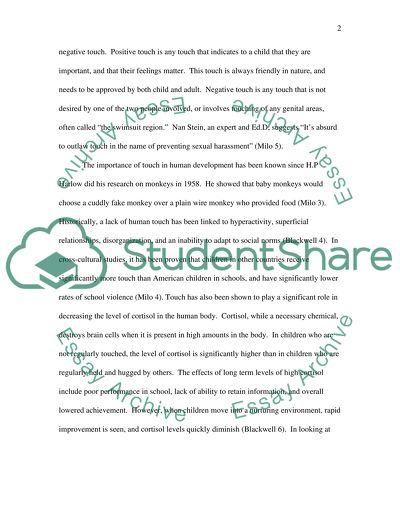The Necessity of Human Touch in the Early Childhood Education Essay. Retrieved from https://studentshare.org/miscellaneous/1501007-the-necessity-of-human-touch-in-the-early-childhood-education-classroom
The Necessity of Human Touch in the Early Childhood Education Essay. https://studentshare.org/miscellaneous/1501007-the-necessity-of-human-touch-in-the-early-childhood-education-classroom.


